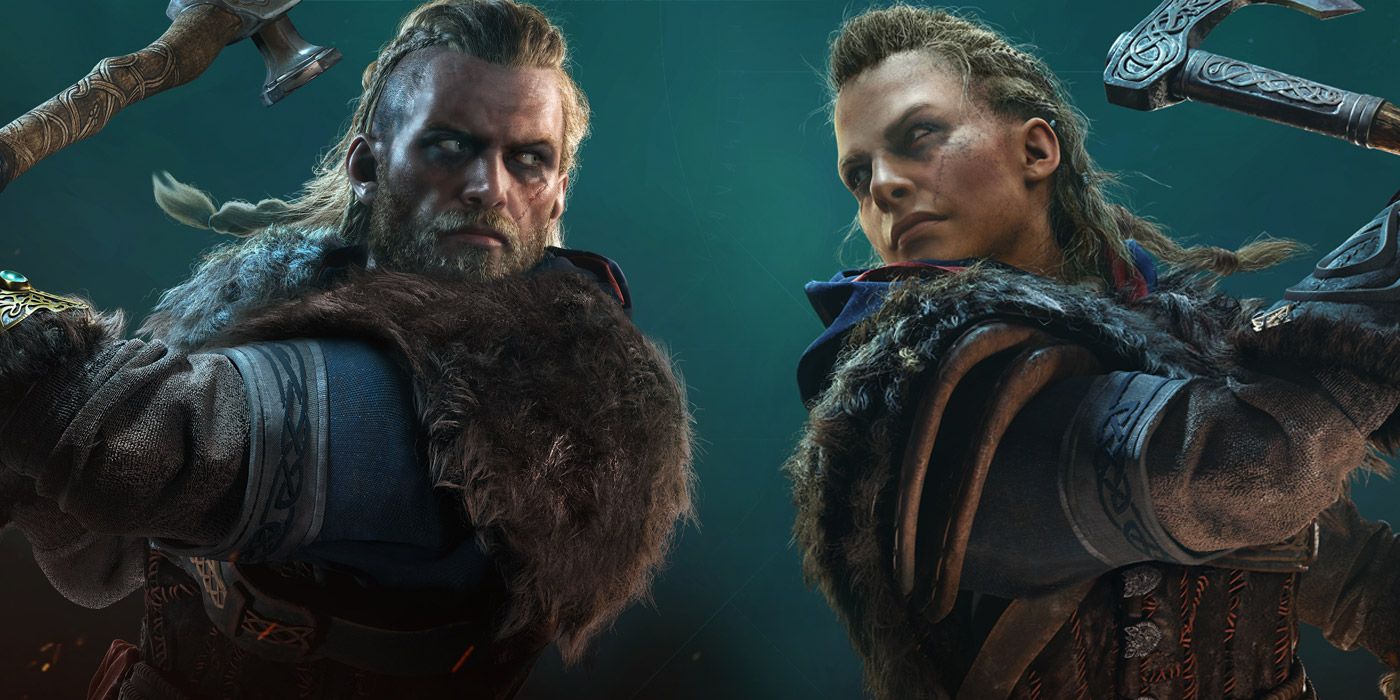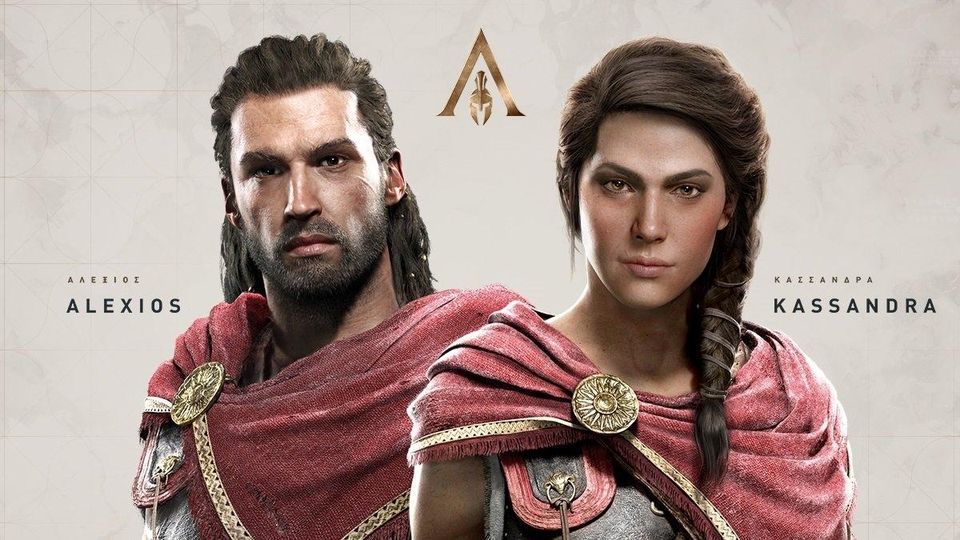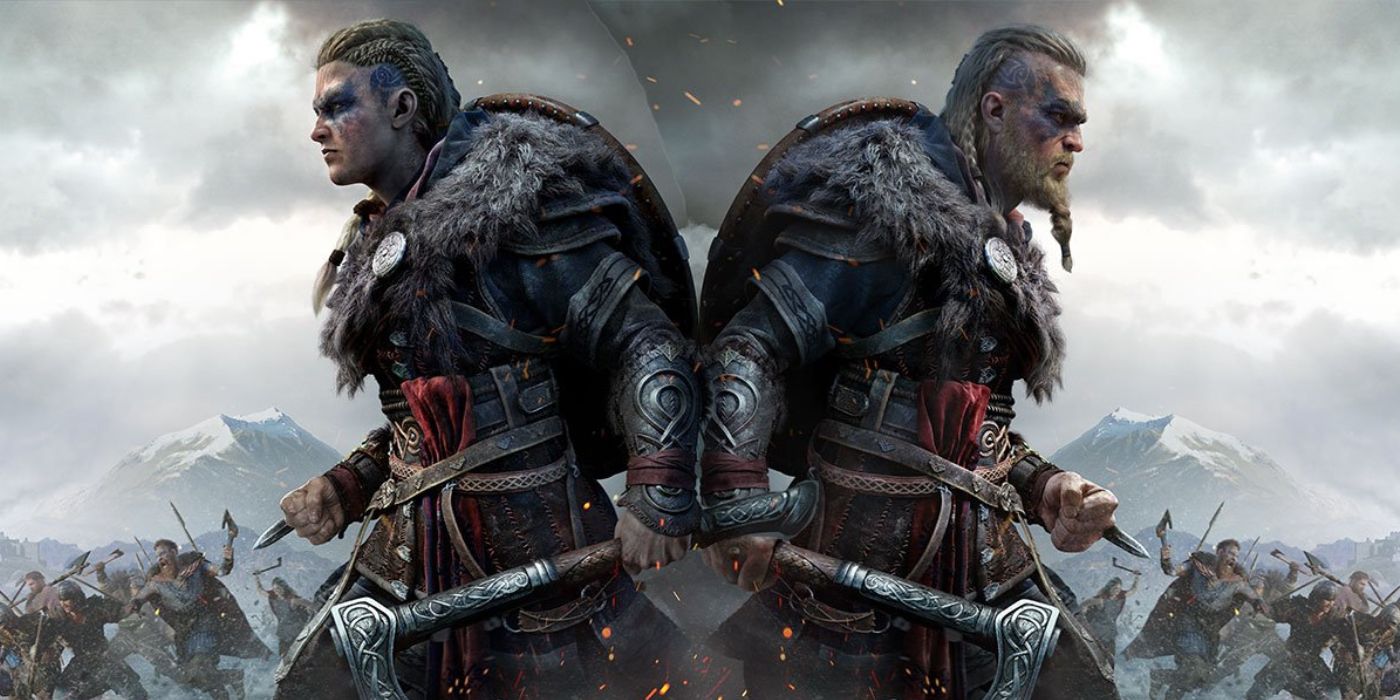Ubisoft is making some serious changes with how it presents protagonists in some games, with Immortals Fenyx Rising (as an example) having no gender options and being able to swap at will. Immortals Fenyx Rising players can instead choose body type and voice, and change as they please, and the same option exists in Assassin's Creed Valhalla, with some more twists.
Not too long after its official reveal, Ubisoft confirmed that both female and male Eivor are canon, then further establishing that the two characters can be swapped at will at any time. However, there's also a third option in AC Valhalla: "Let the Animus Decide." What this option does is put Eivor as a female in certain story points, while making them appear as a male in others.
Apparently, this is the most canonical decision but to explain why would ruin the story, according to Narrative Director Darby McDevitt, and the animus chooses based on memory strength. This has been more confusing for many fans, and of course, until the game releases, there's no knowing for sure. However, given past theories as to why this is, we present a new one: Eivor isn't human in Assassin's Creed Valhalla.
Male and Female Eivor: The Theories
Before moving forward, it's good to look back at past theories as to male and female Eivor's canonicity. There's two prominent theories that come to mind: those being that Eivor is a sort of DNA chimera and/or that Eivor's DNA is so messed up that the Animus isn't necessarily sure which gender Eivor was. However, these both present a strange narrative problem in that the reason is clearly connected to Eivor's memories and the overarching and "unique" story of Assassin's Creed Valhalla.
In other words, Eivor being a human chimera would make sense if both were technically canon, but one was the forerunner. It would explain how players could choose, but the ability to change between male and female Eivor at will, as well as the Animus choosing when to change, doesn't make sense. This option would have nothing connected to the memory stream's strength in AC Valhalla, seemingly anyway. The same goes for the Animus: while it's a good explanation, other context rules them out.
Boiling that down leaves two key facts: Eivor's gender is associated with the memory stream strength, and somehow, Eivor changing gender in the game world happens...without startling those around them. A working comparison, at least for now, is that Eivor is a bit of a doppelganger, which would mean that the gender changes are intentional and that Eivor is aware of them. Eivor could be male or female in any one scene, with the animus attempting to understand the memory of that, and thus the question becomes: in what reality could Eivor themselves, struggled through Layla Hassan's scope in AC Valhalla, understand this gender swap?
Alexios/Kassandra, Male and Female Eivor, and Desmond Miles
If Eivor is aware of this, they are extremely powerful somehow, yet it's worth pointing out how powerful some Assassin's Creed characters actually are. For example, what makes Desmond Miles special in his modern-day story is his special potency of Isu blood, as well as the convergence of Altair and Desmond's DNA in him. On the complete other end of the spectrum, Alexios/Kassandra in Assassin's Creed Odyssey are incredibly powerful Tainted Ones...because their "Taint" is one of the purest strands players play as.
After all, Alexios/Kassandra can eventually take no fall damage and more, can fight gods even if it's just a simulation, and with the aid of the Staff of Hermes, navigate a world in which they probably do not belong. All of these characters are powerful in their own right, but Eivor may be taking it up a notch. Assuming that the aforementioned analyses are at least on the right path, then Eivor may very be the most powerful Assassin players have ever played as, but how do they top the superhuman abilities of Alexios and Kassandra?
The answer that brings all of this together and explains how Eivor would have memories of being different genders, how Eivor would actually be able to swap genders, and how this would matter to the story is actually quite simple: Eivor's not human, they're Isu (or, more likely, at least part Isu).
Demigod Eivor
Eivor being part Isu would explain a lot of things, but it does bring up new questions. With the First Civilization destroyed and current encounters often happening through some strange spatial connection, how could Eivor not just be a descendant with Isu DNA but a figure with at least one Isu parent? Again, the answer seems quite simple: one Isu somehow survived and, eventually, had a child in Eivor. After all, Eivor is adopted, with the apparent explanation being that their parents died at the age of 9. That's an easy scapegoat for Eivor's one parent being alive, potentially hunted by AC Valhalla's Order of the Ancients, and how Eivor eventually has to explore this power on their own.
It explains how they would have supernatural abilities, much like Alexios and Kassandra, and would feel much more like a natural progression of where Alexios and Kassandra stood. It could explain a lot about how Layla feels seeing the memories of an Isu, who is sometimes male and sometimes female, and much, much more. There's still some holes in this theory; for example, Asgard and Jotunheim appearing as visions of sorts in the game would seemingly lend credibility to the theory. Notably, though, norse mythology was never known for its "demi-gods." That doesn't mean explanations couldn't be made, but that it would need to be a good explanation.
All things considered, Assassin's Creed Valhalla's launch is not that far off, and this means that answers, whatever that may be, are closer than ever. Until then, it may be best to wait and see what's up Eivor's sleeves.
Assassin's Creed Valhalla releases November 10 for PC, PS4, Stadia, Xbox One, and Xbox Series X, with the PS5 version releasing alongside the console on November 12.



